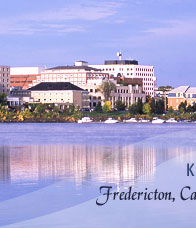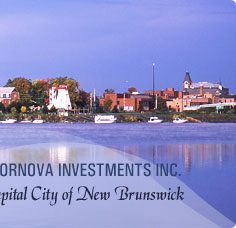Banking for Newcomers to Canada
05/25/2016
Banking for Newcomers to Canada
http://www.cba.ca/en/consumer-information/40-banking-basics/479-newcomers-to-canada
Banks offer extensive information on how newcomers to Canada can get started in their new country, including checklists, information, financial services and advice. Here is some basic information to get you started. A list of bank resources at the end of this article may also help you with your financial transition to Canada.
Access to an Account
Anyone can open a bank account in Canada if they meet the identification requirements set out in the Bank Act. You can open an account even if you don’t have a job or money to deposit, or if you’ve been bankrupt.
Banking is Affordable
Canada has a competitive and affordable banking system, so shop around for the package that best meets your needs, including accounts that are tailored specifically for people who are new to Canada. It’s easy to compare the banking packages available using the online interactive Account Selector Tool available from The Financial Consumer Agency of Canada (FCAC).
Bank Deposits are Secure
Canadian banks are well-managed, well-capitalized and well-regulated. In fact, the World Economic Forum has rated the Canadian banking system number one in the world for safety and soundness for eight years running. In the unlikely instance of a bank failure in Canada, your deposits in your Canadian dollar savings and chequing accounts (up to $100,000) are protected. The institution must be a member of the Canada Deposit Insurance Corporation (CDIC), and it’s important to note that all Canadian banks that take retail deposits are members of CDIC.
Interest Rates
Interest rates for different products are set by each bank. The decision on how much interest to charge on a loan depends on how risky the loan is and the prices that banks and other lenders pay to raise funds in the broader marketplace. Once again, Canada has a very competitive banking industry, so shop around.
Savings Tools
Banks in Canada also offer a variety of savings accounts to help you save your money. The government of Canada has created special registered savings accounts that accumulate earnings tax-free.
A National System of Banking
Canada has a national system of banking where, in addition to many smaller and regional banks that provide local competition, the five largest banks compete across the country with branches in each of the ten provinces. The benefits of this national system mean that you have access to similar products at the same price regardless of where you live in Canada. Canadians also have access to a national network of 6,300 branches, 18,775 bank-owned ABMs, debit payment services at more than 450,000 retailers in Canada as well as internet, mobile and telephone banking.
You can open a bank account in Canada if you meet the requirements that are set out in the Access to Basic Banking Services Regulations under the Bank Act. You can open a bank account even if:
-
you don’t have a job,
-
you don’t have money to put in the account right away, or
-
you have been bankrupt.
To open a bank account, you must present two specific pieces of identification, such as:
-
a Canadian driver’s license,
-
a Certificate of Canadian Citizenship,
-
a Certification of Naturalization, in the form of a paper document or card but not a commemorative issue,
-
a Permanent Resident card or Citizenship and Immigration Canada Form IMM 1000 or IMM 1442.
A foreign passport and an employee card with a photograph are also acceptable pieces of secondary identification. You can find a full list of the kinds of identification that a bank can accept in Opening a Bank Account.
It’s also possible to present only one piece of identification if your identity can be confirmed by a client in good standing with the bank or by an individual of good standing in the community where the bank is located.
Getting started with a bank account is easy and there is a lot of choice: there are over 100 consumer bank account packages alone to choose from offered by more than 20 banks in Canada. You can also comparing accounts easily using a simple, free, online tool from the Financial Consumer Agency of Canada.
Some newcomers to Canada regularly send money to loved ones in other countries. Banks in Canada can make these transfers, called remittances, to family members or friends abroad in a number of different currencies. Typically the person you are sending money to will need to have a bank account but they may also be able to pick up the money at a bank branch without an account if they present the proper identification. Banks charge a fee for remittance payments and the fees are clearly disclosed on bank websites and in branches. You can find links to the websites of CBA member banks here.
If you are sending money to someone in another country that does not have a bank account, there are money transfer services such as Western Union and MoneyGram that can do that for you. These companies can transfer money to thousands of agents around the world that are often located in shops and other retail outlets.
Banks also offer different types of savings accounts to help you save your money. The Financial Consumer Agency of Canada offers an Account Selector Tool to help you choose an account that best meets your needs. The Government of Canada has also created a number of special registered savings accounts to encourage tax-sheltered savings. These registered accounts are all available from banks in Canada and include:
For more information on these and other savings accounts, visit the Saving and Investing section of this website.
Many new Canadians want to start their own businesses and look to banks for financial advice, services and products. The majority of bank business customers are small businesses and banks work hard to meet the needs of this large and diverse group.
Banks offer financing, information, advice and many other services to help people start and manage their businesses, including educational and planning resources such as seminars and workshops, credit cards for small business, lines of credit, overdraft protection, telephone banking, online banking, venture loans, and payroll and cash management services.
To learn more, go to the Small Businesses section.
The Basic Banking section of the Canadian Bankers Association website
The Financial Consumer Agency of Canada
Prosper Canada has developed a Money Management Tool to help new Canadians succeed financially in Canada
Bank resources to help with the financial transition to Canada:
BMO New to Canada — For those planning to come to Canada soon, or who have recently arrived in Canada, this page helps ensure the financial transition goes smoothly.
CIBC New to Canada — Information on living, working and studying in Canada, as well as getting identification.
HSBC New to Canada — A checklist for newcomers, advice on getting started in Canada, a Canadian immigration and banking glossary, and information on accounts for newcomers.
ICICI — Information about a Hello Canada account.
National Bank of Canada Newcomers to Canada – Information about working, studying and starting a business in Canada along with a checklist.
RBC Newcomers to Canada — Information about life in Canada, buying a home, employment and financial services that are tailored to newcomers’ needs.
Scotiabank Startright Program for New Canadians — A banking program for new Canadians.
TD Canada Trust New to Canada — A summary of TD Canada Trust initiatives to help newcomers better understand banking in Canada.
|





